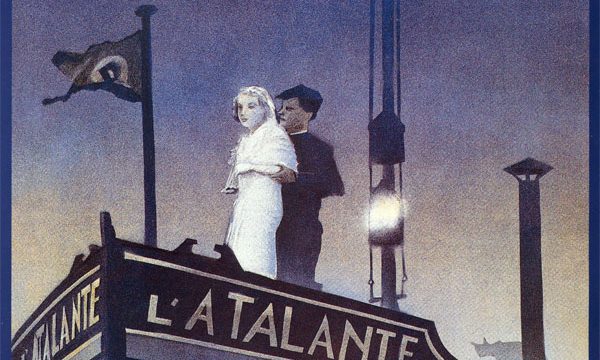Sight & Sound Voyage Entry #29
Placement On Sight & Sound Top 50 Movies List: #12
It can be tough sometimes to review classical movies through a millennial prism, only because not everything from older movies is going to hold up. Pieces of dialogue and actions now considered to be unacceptable in our modern society may have once been deemed fine as rain to do in even the most serious circumstances. You can even see this phenomenon in films made as late as the 2000’s; there’s plenty of gay panic jokes or gags that are incredibly demeaning towards the LGBTQA community in plenty of supposedly light-hearted comedies. Times change, but art is always stuck in the era in which it was made which means the vast majority of cinema, for instance, may carry over aspects from certain eras that seem unsavory in today’s world.
I try to be open-minded about this kind of thing when it comes to early works of the 20th century, but there does arise some pieces of film or whatnot that contain some stuff that just feels too disconcerting in a modern context to ignore even if it wasn’t a big deal at the time it was made. L’Atalante has one such pivotal moment in its third act that sets the rest of the plot in motion and really undercuts the mood of the entire movie. Before that moment comes though, things are pleasant enough, as a newly married couple, Jean (Jean Daste) and Juliette (Dita Parlo) set off to live for an extended period of time on the boat called L’Atalante.
They are joined by Pere Jules (Michel Simon), a cat obsessed sailor whose seen it all. Jean and Juliette have moments both joyous and confrontative on the boat, as all couples are wont to do, However, the two are broken apart after a particularly nasty argument that ends with Jean smacking his wife. Afterwards, she runs off to live a solo life in Paris, France, leaving Jean in distress. That’s a bold illegal action to take against your significant other and one that L’Atalante just isn’t quite equipped to handle in a satisfactory manner. Having that be the element that drives the two apart really does hurt the movie as a whole in a big way.
L’Atalante is very clearly trying to be a light and frizzy romantic movie, one that is supposed to make your heart sing and swoon in equal measure. Sometimes it’s successful at making that aesthetic work, sometimes it’s not, but it does keep the movie plenty enjoyable….until you bring overt wife-beating into the proceedings and then your entire mood gets dragged down. Immediately after the two break apart, L’Atalante still tries to compose itself as a light-hearted endeavor, complete with a “joyous” reunion between the two lead characters but it just feels icky more than anything else. At this point, I’m not rooting for Juliette to get back together with Jean like the movie obviously wants me to, far from it.
It’s just such a bizarrely incorporated element that doesn’t fit at all into the tone of the motion picture. I have no trouble believing spousal abuse was not looked upon in as unsavory of a manner in 1934 as it is today (and even today we still have massive problems with properly helping those trapped in abusive relationships) but I just couldn’t get past how out of place it is in a movie that doesn’t have anywhere near the weight to it to properly handle this issue. To boot, incorporating physical abuse into the story basically undercuts the entire third act as it’s impossible to remain invested in the plight of the lead romantic couple.
But there is plenty of other content to talk about regarding L’Atalante in addition to that incongruous appearance of wife abuse. Actually, the rest of L’Atalante is pretty good, if a little on the slight side substantively. The actors all do a fine job with their roles under the direction of legendary filmmaker Jean Vigo, particualrly Michel Simon in a scene-stealing turn. All of the sets used to depict the interior locales of the ship are well-constructed, there are some memorable humorous moments and plenty of cute kitties that are really just fun to watch get into antics in the background. There’s plenty of positively noteworthy traits in L’Atalante that make me wish it didn’t have major plot elements that are tonally dissonant with the rest of the movie in the third act.

